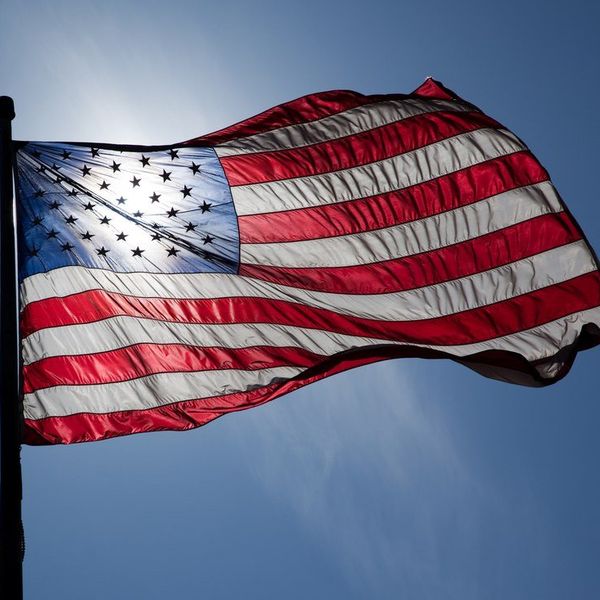It's no secret that America is divided.
Like everywhere else, we have problems, brought under a strong microscope throughout the technological boom of the 21st century. Within the past decade, it has seemed as though America is a broken union, the public divided into two very distant and polar-opposite partners, who refuse to find common ground on near every social, political, and economic issue.
Though democracy has always been a key aspect of what brings meaning to the United States of America, the failure of recent leaders to use democracy as a tool for compromise rather than a means to their own individual gain has led to a hate-filled, fear-driven nation, who is terrified to move out of the past, instead citing what problems they believe the other side will bring to the future.
The last presidential election and its effects are possibly the greatest examples of our dire situation. At a time when our political and ethnic diversity should be most evident and celebrated, it instead became a means for division and even more troubling became a political tool to drive the results of voters.
But infrequently we are reminded of a purer America. An America where democracy ruled and where immigrants fled to in search of ideals rather than simple economic gains. The recent death of Senator John McCain allowed for a brief look back into the life of a man who loved his country and fought for its success, on both a literal and political level.
Born into a family of career servicemen, McCain followed suit into the Navy, fighting in Vietnam and enduring a five and a half year stay at a North Vietnamese prisoner of war camp. McCain used this harrowing experience as a fuel for his political career where he became regarded as a "Maverick" who put the success of America over his own political beliefs.
In his memoir entitled "Faith of our Fathers," McCain allowed for a look into motivations and ideals, providing perhaps his most memorable quote:
"In prison, I fell in love with my country. I had loved her before then, but like most young people, my affection was little more than a simple appreciation for the comforts and privileges most Americans enjoyed and took for granted. It wasn't until I had lost America for a time that I realized how much I loved her."
Though John McCain and I were from two different times, two different backgrounds, and had belonged to two different political "parties," I will forever remember and learn from the life of this true American. McCain was a man of the past who stood for what American political leaders of the future should be, willing to break party lines, fight for their voters, and hold true to their beliefs.
An everyday American will likely never face the hardships which came between McCain and his country, but it shouldn't take a near-death experience to realize we take for granted what's provided. We may no longer lead statistical categories measuring economic growth or standards for education, but we are one of only a few countries where we are truly given the freedom to be ourselves. America calls us to discover our strengths and pursue them, even when they aren't practical or the path to our future may not easily be seen.
It's easy to see the problems our generation fights to solve through various social and political movements (another blessing taken for granted), but patriotism has become less and less apparent within the growth of "Generation Z." Gone are the days of the mid-20th century where our mainly white populace chanted praise for our war declarations and wins (and rightfully so), replaced by a more educated public intent on shaping America into its new ideals, rather than remain in the rut of their grandparents.
Though I believe in, participate in, and take pride in the social movements of our current decade, its slightly upsetting that most young Americans (me included), are no longer proud of common facets of American patriotism, such as standing for the pledge to the flag or the National anthem. As Americans are faced each day with the explosion of new social issues into their media webs, it becomes increasingly harder to take pride in a country and society with which we are fighting against, that being our own.
John McCain knew our country had problems, likely joining politics in an attempt to fix them. But he didn't forget where his motivation came from. Not to dethrone an old, corrupt political framework, but to build upon it. McCain believed in politics and social movements as a means for our country to grow, not a means for our country to politically concave, as desired by a large portion of those within the social justice movement.
While we must keep fighting to bring America into the light of the 21st century, we can't lose sight of our past. We have to take pride in our country, issues included, and realize that we aren't the first generation to fight the social system. John McCain's America had problems, one of which he ended up losing five and a half years of his life in, but he always remained proud to be an American, and as we fight, we should too.



















